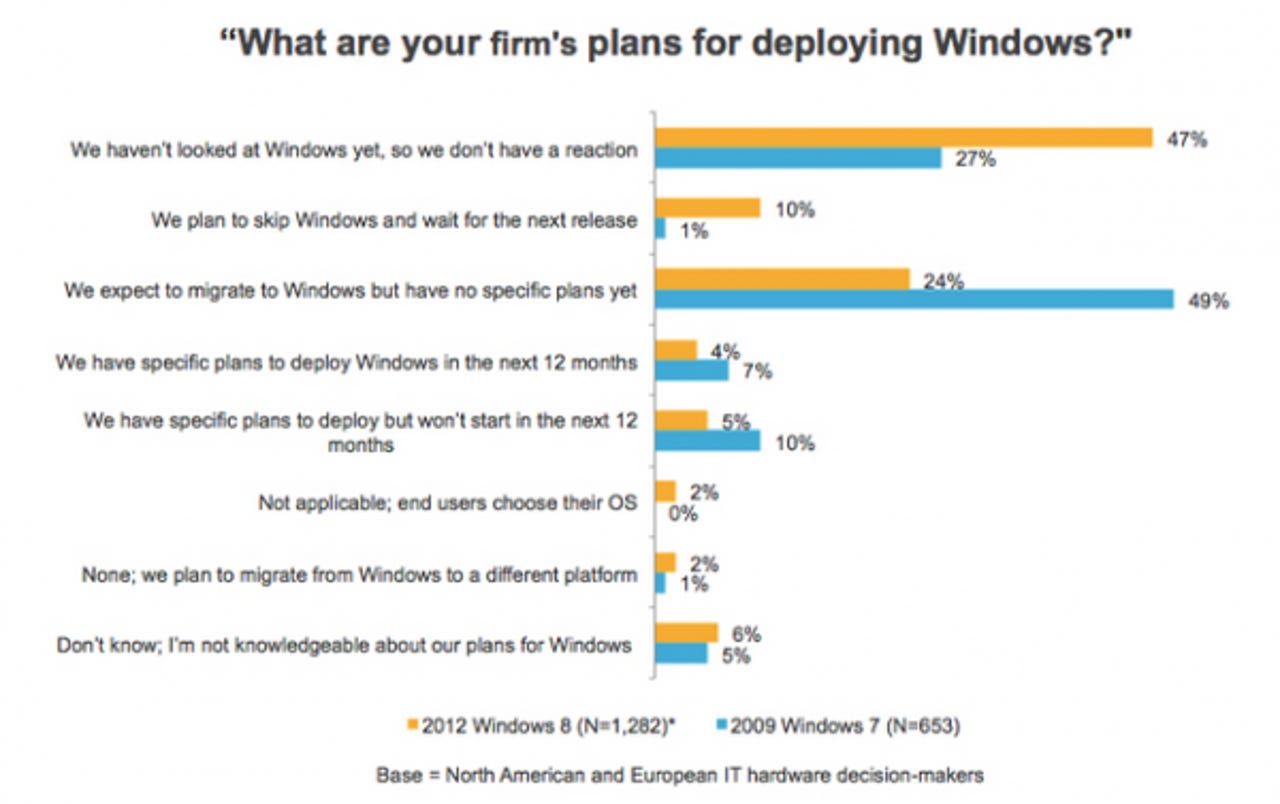Forrester finds mixed prospects for Windows 8 in the enterprise

There's mixed news for Windows 8's prospects in the enterprise, according to new information from Forrester Research.
From the IT hardware buyer's perspective, the news isn't positive. "The first is that Windows 8 is seeing roughly half of the interest from IT hardware decision-makers that Windows 7 saw at the same point in its release cycle," according to a November 15 blog post from Forrester analyst David Johnson.
Johnson compares the reactions of 653 North American and European IT hardware purchasers that Forrester surveyed in 2009 to reactions of 1,282 similar professionals surveyed in the third quarter of this year. He noted that substantially fewer of those surveyed said they expect to migrate to Windows 8 at some point. And only five percent of those surveyed have specific plans to migrate to Windows 8 in the next 12 months, compared to 10 percent who said the same about Windows 7.

Here's what Forrester's summary fails to make explicit: Windows 7 (Windows 8's predecessor) is seen as a solid operating system release, and one to which many IT shops are only now moving. Vista (Windows 7's predecessor) was not widely adopted or seen as a release to which organizations would benefit from moving. In other words, Windows 7 might be too good for its own good (like another version of Windows before it), at least in the business world.
The other caveat: IT organizations seldom move to a new operating system shortly after it is released. Even if they stop waiting around for the first service pack before moving, larger shops have lots of planning and testing to do before making such a move. Windows 8 only became available to volume licensees a couple of months ago.
Not all of Forrester's projections spell doom and gloom for Windows 8's enterprise prospects.
Windows 8 will accelerate BYOD (bring your own device) demand, Forrester predicts, with 20 percent of the 9,800 information workers they surveyed claiming they would like Windows 8 to be the operating system on their next tablets -- more than wanted iOS, Android or Windows 7 on new touch tablets. Information workers still said they preferred Apple's iOS (26 percent of those surveyed) over all other options.
Microsoft has focused on consumers rather than IT customers first and foremost with Windows 8 and Windows RT, as the type of applications currently available in the Windows Store makes plain. This is the way Microsoft also decided to go with Windows Phone: The first Windows Phone OS 7.x releases targeted at consumers, with Windows Phone 8 OS finally starting to add more features to appeal to business users.
It's early days, in terms of predicting how well or poorly Windows 8 will sell. Early Windows 8 sales indicators, as detailed by my ZDNet colleague Larry Dignan, paint a nuanced picture.